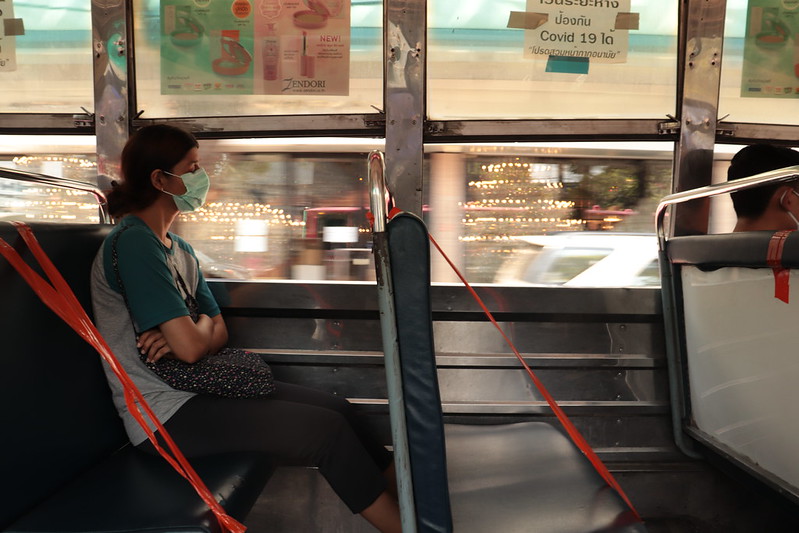The International Labour Organization’s (ILO) Global Business Network on Forced Labour is building a future without forced labour. As the effects of COVID-19 exacerbate root causes, action from the public and private sectors is necessary to prevent an increase in forced labour. We recommend that:
- all governments address the root causes of forced labour, and
- business increases its focus on preventing and tackling forced labour.
The Covid-19 crisis has the potential to amplify the root causes of forced labour.
The root causes of forced labour are: poverty, weak governance, informal economic activity, lack of access to social protection, low awareness of labour and human rights, humanitarian crises, and discrimination. [i]
There are indications that these root causes are more pronounced as result of the social and economic impact of the COVID-19 crisis.
Deepening poverty
Many peoples’ livelihoods will be lost or significantly affected. Global working hours declined in the first quarter of 2020 by an estimated 4.5 per cent, equivalent to approximately 130 million full-time jobs. Global working hours in the second quarter are expected to be 10.5 per cent lower than in the last pre-crisis quarter. This is equivalent to 305 million full-time jobs. Additional potential impacts include a reduction in remittances.[ii]
Without social safety nets, poverty may leave people with no choice but to accept any job regardless of the conditions. Migration within or across national borders once restrictions on movements are decreased may become a necessity for many. This creates opportunities for unscrupulous labour brokers to exact high fees. It also increases the risk of trafficking for forced labour.
Increased informality and reduced access to social protection
Forced labour imposed by private actors occurs overwhelming in the informal economy. Those working in the informal economy are also often without social safety nets and may not be able to access government relief or support. Furthermore, employment in the informal economy often increases during crises.[iii]
Currently, almost 1.6 billion informal economy workers are significantly impacted by lockdown measures and/or working in the hardest-hit sectors, accounting for 76 per cent of informal employment worldwide. The ILO estimates that earnings for informal workers declined in the first month of the crisis by 60 per cent globally.[iv] Additionally, people in vulnerable situations, such as migrant workers, may be in irregular situations or not covered by existing social protection systems.[v]
Weakening governance structures
Inadequate legislation or poor law enforcement means that perpetrators of forced labour are not caught or prosecuted, and that victims are not confident in seeking help to uphold their rights. While the COVID-19 crisis will not have changed existing legislative structures, governments will be focused on dealing with the COVID-19 crisis, possibly leading to less support for enforcement.
This comes at a time when necessary measures to restrict movement of people and close facilities such as schools increase opportunities for trafficking and forced child labour. Moreover, workers organizations and civil society groups identifying and supporting victims face restrictions on movement. They may also have to reduce overall costs and capacity as funding shortages hit.
Increased discrimination
Discrimination leads to increased risks of forced labour as a result of social exclusion and abuse. The COVID-19 crisis has raised fear and anxiety levels. It has also driven the spreading of misinformation. This is likely to worsen discriminatory and xenophobic attitudes e.g. towards migrant workers or certain ethnic groups, particularly those from countries or internal regions where the virus is more prevalent.
Recommended responses
Governments must address root causes of forced labour
Much of the action required by governments to prevent forced labour has not changed as a result of the COVID-19 crisis but requires more urgent attention. To address the root causes associated with forced labour exacerbated by the COVID-19 crisis, governments should:
- Focus on formalizing the economy to allow for an increase in labour inspections
- Improve access to livelihoods, including by supporting small and medium-sized enterprise business continuit
- Ensure access to adequate social protection, including extending measures to migrant workers
- Adopt and enforce the appropriate legal framework to eradicate forced labour. This may require adopting or upgrading relevant existing legislation to align with ILO Convention 29 and its associated Protocol. Effective enforcement of legislation is key, including through labour inspections.
Business must increase its focus on forced labour prevention and risk mitigation
In line with the UN Guiding Principles on Business and Human Rights, and given the heightened forced labour risks, business should:
- Prioritize forced labour prevention as well as risk mitigation. Forced labour risks should be continually reassessed in the light of new data in the context of COVID-19.
- Carry out due diligence processes to identify, prevent, mitigate and address adverse human rights impacts, particularly forced labour.[vi]
ILO Global Business Network on Forced Labour: Response to the COVID-19 crisis
Given the increased risk of forced labour, the network will:
- Increase its focus on eradicating forced labour in crisis situations, in particular by building business capacity as well as by providing tools and advice to the business community.
- Continue its focus on fair recruitment given the increased potential for abuse and the expected increase in job seekers looking for employment abroad.
- Advocate for governments to address the root causes of forced labour such as adequate social protection measures and labour market informality. The network will continue to call for better legal frameworks and enforcement, with particular reference to recruitment and employment of migrant workers.
- Continue to prioritize country-level action with a focus on capacity building for small- and medium-sized enterprises as an economic actor hit particularly hard by the economic impacts of this crisis.
- Increase awareness of forced labour in the business community, encourage more companies and business networks to commit to the eradication of forced labour, and invite them to join the network’s collective effort.
- Continue working with the Alliance 8.7 Pathfinder Countries on advocacy and capacity building to regain momentum on forced labour eradication.
